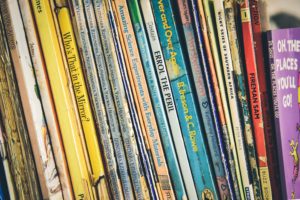1. What is the mission of The Reading League?
We are a nonprofit organization whose mission is to increase the awareness, understanding, and use of evidence-aligned reading instruction. An educator needs to know that there is a 40+ year research base (awareness that there is a lot of knowledge they might not know), understand what some of that research means (understanding of “the why”), and then be supported as they transform their practices (coaching as they begin to “use”). We do not work directly with students; instead, our mission involves building educator knowledge so they can teach all students to read. Knowledge is key – in any profession, when we know better we do better. All of us have to be lifelong learners.

2. Why/how was it founded?
Many of our founding members, including myself, had spent a lot of their careers teaching, researching, providing professional development, publishing, presenting, and more. We realized that very little of this work (thousands upon thousands of hours) was translating the research into practice. We knew that there are literally hundreds of studies showing that essentially all children can learn to read if they are provided instruction that aligns with how the brain is wired to read words and process print for meaning. But we often ran up against beliefs that “some children just aren’t meant to read” and perceptions that poverty and home experiences and growing diversity in classrooms were impervious to instruction. Personally, I was horrified to see such widespread misunderstandings but I was powerless to change any of it. All the teaching I did in a school of education was excellent, but it would “melt away” once the students were hired into schools implementing minimally effective instruction. Any articles I wrote would not be read by educators. Any professional development I did would come and go, with no changes happening in the classroom. It was very discouraging. Luckily, I realized that I had well over a hundred friends, colleagues, and acquaintances who understood there was a science of reading…a research base of evidence in everything from phonological awareness, phonics, fluency, vocabulary, comprehension, language comprehension…. you name it. So I called them all together to form The Reading League. Together we have a louder voice than what we had as individuals.
3. Why is literacy foundational from your perspective?
Literacy is essential for a human being to feel a sense of belonging to their society. People who are not literate enough to participate in school, work, or civic activities often have to rely on an oral language, rather than a written one. And oral languages are not rich enough to provide learning, security, and belonging. Lack of strong literacy skills creates an oppressive weight of self-doubt (“something is wrong with me”). It is highly associated with depression, school dropout rates, bullying, suicide and suicide ideation, unemployment or underemployment, incarceration rates/crime, and more. It is never a good thing for anyone. And the reason someone doesn’t learn to read is that they aren’t taught. Everyone can learn to read if we build a system like a levee with sandbags: strong teacher knowledge built from within universities, high-quality professional development and coaching provided by schools, published materials that are in alignment with the evidence base, and more. It is a complex problem that demands a concerted solution because there is a multitude of social, psychological, emotional, financial, and spiritual ramifications that are at stake.
4. We notice that the organization puts a lot of effort into building awareness that evidence-based instruction exists – why is that necessary?
Too often the training educators get is “one and done” professional development. Someone comes in to teach them a “quick fix” – a new program, a new strategy, a new activity. And that never changes anything – reading rates remain stagnant. When educators are shown that there is an evidence base created by cognitive psychologists, speech/language pathologists, neuroscientists, and many more, they are stunned. Previously, they might have understood literacy instruction to be based on anyone’s beliefs or philosophies (their own, a researcher’s, a publisher’s). And as a result, we are told over and over again that “we’re winging it” and we’re using “lots of stuff to piece literacy instruction together.” We try to refrain from providing any professional development about strategies, programs, and activities until we first provide knowledge about what has been shown to be maximally effective in the evidence base and why. The WHY is so important. It provides educators with what they need to be good consumers about anything that is provided to them. For instance, if they understand why phonological awareness is critical for learning to read, they are then very likely to advocate for including phonological awareness instruction for the rest of their careers. If we just provide them with a manual and say, “here, go teach phonological awareness using this,” they might not teach it as it was designed, nor consistently, nor care as much if the district decides to eliminate it.
5. You have thousands of Reading League members. What does their involvement look like?
Right now our members commit to continuing to increase their knowledge, understanding, and use of evidence-aligned instruction in reading. We’re currently working on expanding our membership program. Stay tuned for a special announcement coming out in September – members will hear of it first. You can become a member by “joining” us at www.thereadingleague.org.
6. What impact are you most proud of?
We are certainly proud of the overwhelming support we have received since our inception. It has allowed us to build capacity at an exponential rate, which in turn allows us to do what we are most proud of: build teacher knowledge and watch it have an impact on the growth of their students’ reading achievement. It is all very exciting and humbling.
7. What is the organization working on now or most focused on now?
Currently, we are working on building a national network of Reading League affiliate chapters. We are also always working on our Live Event programming and annual conference planning. There is one huge project that we can’t announce yet – stay tuned!
8. It sounds like you are very inspired by your work, why?
My whole career has involved working with children and adults who find learning to read painfully difficult. It literally chews them up inside. Adults see little kids learning to do something with ease that they can’t do. Little kids see their friends enjoying books and learning about their world and feel broken. Reading isn’t a random skill you’ll only use once in a while. It’s a skill you need in order to do almost everything else in life. How devastating it is to see students work so hard and be told to “just work harder.” This pain doesn’t just happen in school. It continues at home…doing homework is a battle for the whole family. Parents are at a loss and frustrated and have to spend huge sums of money on outside tutoring if they are able to do so. This is just madness when we know what works. I’ll say that again. We know what works. We know how to prevent reading difficulty through early screening. How can we not be inspired if we have witnessed what works and yet see so much resistance to it from legislative chambers to university campuses to publishers catalogs…we could go on and on. When we started The Reading League, we all donated our time and talent and treasures and banded together with this mantra: “If this helps one teacher to teach one child to read, it is worth it.” And we know we have already helped hundreds of teachers. It is more than inspirational. There are no words for what that feels like.

